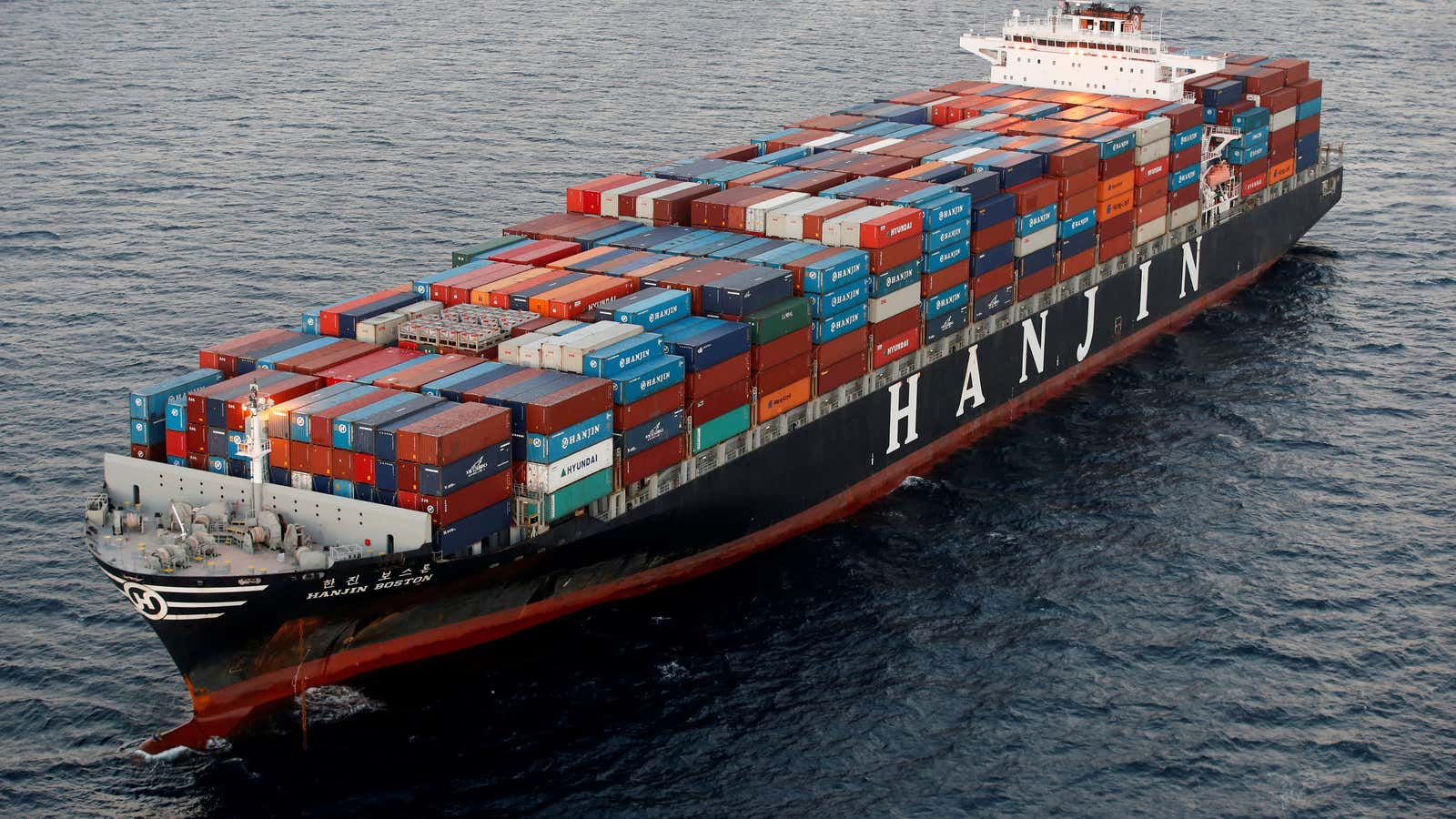Shipping goods to Nigeria by sea from the United States can leave a big hole in your pocket.
Analysis on overseas cargo and freight costs by MoverDB, an online resource for international shipping, shows that the cost of shipping both 20-foot and 40-foot containers to Lagos ports from New York is the most expensive globally. The report covers the shipping costs from New York and Los Angeles to 47 port cities globally.
The high costs of shipping to Nigeria do not correlate with distance. For instance, shipping from New York to Nigeria is nearly double the cost of shipping to South Africa even though Nigeria is closer, by nautical miles, to New York compared to South Africa.
Much of the high costs of shipping to Nigeria is tied up in entrenched inefficiency at its local ports. For starters, Nigeria has very few functional ports even though its economy—Africa’s largest—continues to rely heavily on imports. The slow pace of inspections and offloading of shipping arrivals means that congestion and bottlenecks are nearly perpetual in Nigeria’s biggest port in Apapa, Lagos. The ports’ inefficiencies have for years enabled and incentivized corruption from official and unofficial middle men promising to clear goods for a “fee”.
Last year, in a bid to ease import and export flow, the government launched reforms at the ports. The government worked to clear the ports of local touts who extort bribes and also mandated that the Apapa port run 24-hour operations. Yet, despite a federal executive order, neither measure has been fully implemented, according to a regular user of the port.
While the shipping prices in MoverDB’s report are accurate as of early 2017, anecdotal evidence suggests the reality hasn’t changed much since the reforms were introduced. Indeed, inefficiencies at the ports remained primed to allow clearing agents continue to play a key role in processing goods for importers while likely in cahoots with local customs officers. ”You can try to clear your container yourself but the problem is that customs will frustrate you. You have to go through an agent.” says the regular user, who asked not to be named as he still has to work with officials at the port.
Sign up to the Quartz Africa Weekly Brief here for news and analysis on African business, tech and innovation in your inbox
